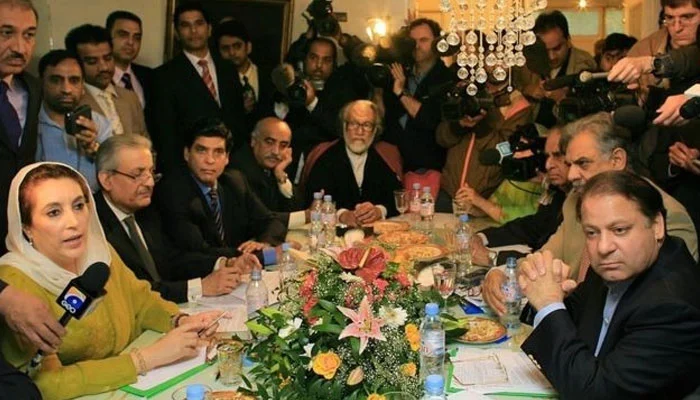Former prime ministers Nawaz Sharif and Benazir Bhutto engaged in a “tug of war” for over 20 years (1986–2006), until they eventually came to terms on the “Charter of Democracy” (CoD). This happened after General Pervez Musharraf, the previous head of the military, disallowed both leaders from running in the general elections in 2002. The opposition leader at the time, former prime minister Imran Khan, approved of the action and backed Musharraf, a choice he subsequently regretted once the latter ignored him as well.
In addition to creating a constitutional court, one of the main provisions of CoD dealt with the parties’ future interactions with the institution. It said that “no party shall solicit the support of the military to come into power or to dislodge a democratic government.”They also promised not to join any government backed by the military or a military rule.
In an effort to garner support for the creation of a constitutional court as part of CoD, Pakistan People’s Party (PPP) Chairman Bilawal Bhutto has been aggressively speaking to bar associations and other venues in recent days. The history of CoD must be understood by the public in order to explain why it was not implemented earlier, for example, in 2008 or 2013, when the PPP and the Pakistan Muslim League-Nawaz (PML-N) were both in power.







